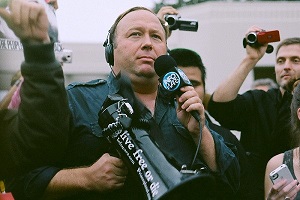Alex Jones and the Right to Offend
Ed Brodow

On Dec. 14, 2012, a mass shooting at Sandy Hook Elementary School in Newtown, Connecticut resulted in the deaths of 20 children and six staffers. Alex Jones, a controversial far-right talk show host, called the Sandy Hook massacre a U.S. government hoax, staged using crisis actors, to serve as a pretext for gun control. Parents of one of the slain children filed a defamation suit against Jones, claiming that followers of Jones had harassed them and sent them death threats for years in the false belief that they were lying about their son's death.
Jones's defense was his right to free speech and that he was not responsible for the harassment. He lost. The jury awarded the parents $45.2 million in punitive damages on top of $4.1 million in compensatory damages — another example of outrageous damage verdicts that plague the legal system.
Freedom of speech is coming under attack from all directions. The primary assault is based on the existence of a new "right": the right not to be offended. It is claimed by many on the left that the right not to be offended is more important than the right to free expression. Our colleges and universities have fallen victim to this new "right." The feelings of students often constitute sufficient justification for campus censorship. If a conservative speaker offends some of the students, that speaker can be denied a platform. "The belief that free speech rights don't include the right to speak offensively is now firmly entrenched on campuses and enforced by repressive speech or harassment codes," wrote attorney Wendy Kaminer in The Atlantic. The problem is spreading to the mainstream.
























